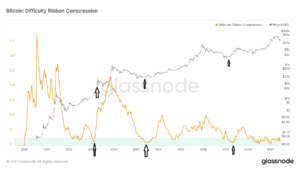Cyber Attack Infects 40,000 Computers, Ransom Demands Up to $5 Million
Yesterday, I noted Cyber Attack Infects 40,000 Computers, Ransom Demands Up to $5 Million
The payment demands are in Bitcoin as has been the case in nearly all ransom demands.
In the latest attack, some companies have been asked for $5 million in ransom.
RECOMMENDED ARTICLES
Colonial Pipeline
In May, Colonial Pipeline CEO Tells Why He Paid Hackers a $4.4 Million Ransom.
Joseph Blount, CEO of Colonial Pipeline Co., told The Wall Street Journal that he authorized the ransom payment of $4.4 million because executives were unsure how badly the cyberattack had breached its systems, and consequently, how long it would take to bring the pipeline back.
The pipeline, which transports gasoline, diesel, jet fuel and other refined products from the Gulf Coast to Linden, N.J., wound up being shut down for six days. The stoppage spurred a run on gasoline along parts of the East Coast that pushed prices to the highest levels in more than 6 ½ years and left thousands of gas stations without fuel.
Food Processor JBS
A month ago, food processor JBS paid $11 million in a ransomware attack. JBS is the world’s largest food processor and the biggest beef processor in the US.
JBS subsidiaries include widely recognized names such as Pilgrim’s Pride, the second-largest U.S. poultry processor.
Is Ransomware the IRS of Bitcoin?
That’s the claim made by WSJ writer James Mackintosh in Ransomware Is the IRS of Bitcoin
While Mackintosh has some good ideas, the article is also a hodgepodge of poorly explained ideas. Let’s have a point by point look with what I agree with and what I don’t.
Mackintosh: It doesn’t really matter how inconvenient it is to pay in bitcoin when you don’t have any other choice
Mish: The inconvenience is having your systems shutdown and paying a ransom. Bitcoin adds little to the inconvenience.
Mackintosh: Money was created because early humans found it so inconvenient to barter with pigs, llamas or berries.
Mish: Agreed
Mackintosh: It would be much easier to swap my llamas for widely accepted items—cowrie shells, fancy feather boas or carved stones. Money was also a means of accounting for debts; easier still than using cowrie shells would be to take the grain now, get some notches on a tally stick, and later provide llamas, or grain, or whatever was promised to pay off the debt.
Mish: Throughout history, when gold has been available, it was universally accepted as the preferred currency.
Mackintosh: Bitcoin has floundered because of the cost and hassle required to actually buy something in bitcoin.
Mish: Agreed. And Lightning Network has done next to nothing to remedy that, despite claims of Bitcoin advocates. Proof is merchant acceptance.
Mackintosh: Even in El Salvador, where bitcoin is being made legal tender, stuff will still be priced first in dollars, then translated into bitcoin for anyone paying in crypto.
Mish: Agreed. And don’t believe for a second that El Salvador really has the interests of its citizens in mind.
Mackintosh: One of the founding principles of MMT is chartalism, the idea that money has value because we have to pay our taxes in it
Mish: That is one of the few claims of MMT that makes any sense. But that happened slowly, then in spurts over time. First, president FDR confiscated gold. He should have been impeached and imprisoned for theft. Then in 1971, Nixon ended convertibility of gold. Financial recklessness ensued as evidenced by massive boom-bust cycles that ensued. Meanwhile, people had to pay taxes in dollars, once backed by gold (albeit with fraudulent fractional reserve lending), then by nothing.
Mackintosh: Think of the ransomware that encodes your hard drive and demands payment in bitcoin as the crypto version of a tax demand and IRS enforcement wrapped up together. If enough people have to go out and buy bitcoin to pay ransoms, others will produce and hold it ready to sell because there is steady demand.
Mish: This starts getting very sketchy. Bitcoin exploded in price before these massive ransomware attacks. It is the anonymity of Bitcoin (if the attackers are careful) that makes Bitcoin the preferred choice.
Mackintosh: Ransomware provides a base level of demand, and plays the same role that taxes do in the traditional system.
Mish: Ransomware is a drop in the bucket in regarding the price of Bitcoin. The supply of Bitcoin is every Bitcoin ever mined minus lost keys. Demand for Bitcoin is reflected in the price. A $5 million or even $11 million ransom is but a drop in the bucket in the grand scheme of things.
Mackintosh: Unfortunately for bitcoin, the hack of Colonial Pipeline’s systems went too far. Governments have realized that they need to get serious about tackling ransomware threats, while the Federal Bureau of Investigation’s recovery of roughly half the Colonial payment appears to have pushed hackers to other, more secretive, cryptocurrencies.
Mish: For starters, the FBI recovery of Bitcoin is because the “hackers” were sloppy. They committed numerous silly errors for such an alleged sophicated group. Not only did they leave a sloppy trail, they failed to put their illicit gains into cold storage and change the keys. These were not the errors of the true “hackers” but rather a group of insiders who worked with the hackers. Second, the switching away from Bitcoin is more in theory than practice, at least on a widespread basis. Bitcoin still rules because it is the most liquid cryptocurrency.
Mackintosh: While bitcoin doesn’t appeal to our love of shiny stuff, or have gold’s history of use as money, it will act as a store of value if enough people believe it is a store of value.
Mish: Volatility alone is enough to dispel the idea of bitcoin as a store of value but Mackintosh covers that in his next point.
Mackintosh: Quite apart from its insane swings in price (ideally stores of value wouldn’t double or halve every couple of months), it is full of people trading it in an attempt to become very rich very quickly. That is quite different from buying it as a way to protect one’s wealth if everything goes wrong, which is the usual justification for investing in gold.
Mish: I am back in agreement.
Bitcoin Failed
Bitcoin has totally failed as a transaction system, as a store of value, and as money.
If that statement was false, more merchants would accept it.
Bitcoin advocates point to Lightning Network, for speed and low transaction costs. So why aren’t many merchants on board?
Fundamental Issues Remain
- How does a merchant who does not want to hold Bitcoin, quickly, and at low cost, instantaneously convert Bitcoin back to dollars or euros?
- Given that buyers of Bitcoin do so as a means of speculation, why would they want to purchase things using Bitcoin in the first place?
- What about taxes? The moment someone does purchase something in Bitcoin, they have a tax issue to report. Who wants to deal with that?
- What about Tether an alleged stable coins backed by nothing? Tether stands behind most of the Bitcoin trading.
- What about the possibility of government bans or crackdowns citing fraud, energy waste, money laundering, theft, and cyber attacks?
Elon’s Musk’s acceptance of Bitcoin then reversal in favor of the preposterous Dogecoin was amusing silliness. Other than to prove a point, why would anyone buy a Tesla with Bitcoin?
Point number 5 is very real despite Bitcoin advocates protestations.
Bitcoin Convertibility
If governments do ban or restrict Bitcoin convertibility into cash, what good is it?
No government can physically confiscate your Bitcoin or other crypto if it is in cold storage. But by restricting convertibility to dollars, governments can easily make it worthless for anything but peer-to-peer barter.
The more cyber attacks we see and the higher the speculation in Bitcoin, the more likely governments do crack down.
The very best thing that could happen to Bitcoin would be price stability. The more stable, the more merchants would accept it.
Unfortunately, however, Bitcoin is little but a speculation device. For reasons noted above it is highly unlikely to be anything more, ever.
Subscribe!
Like these reports? I hope so, and if you do, please Subscribe to MishTalk Email Alerts.
Subscribers get an email alert of each post as they happen. Read the ones you like and you can unsubscribe at any time.
If you have subscribed and do not get email alerts, please check your spam folder.
Mish
- "
- 000
- Accounting
- Agreement
- All
- Anonymity
- appeal
- article
- Attacks
- Ban
- Bans
- Beef
- BEST
- Biggest
- Bitcoin
- bitcoin trading
- board
- buy
- buy bitcoin
- Buying
- Cash
- ceo
- change
- claims
- Coins
- Cold Storage
- Companies
- computers
- Costs
- Couple
- crypto
- cryptocurrencies
- cryptocurrency
- Currency
- cyber
- Cyberattack
- data
- deal
- Debt
- Demand
- DID
- diesel
- Dogecoin
- dollars
- Drop
- Early
- east coast
- energy
- Euros
- Event
- executives
- fbi
- Federal
- financial
- First
- food
- fraud
- Fuel
- full
- GAS
- Gold
- good
- Government
- Governments
- Group
- hack
- hackers
- history
- hold
- How
- HTTPS
- Humans
- idea
- investing
- IRS
- issues
- IT
- keys
- latest
- Legal
- lending
- Level
- lightning
- Lightning Network
- Liquid
- Long
- love
- Merchant
- Merchants
- million
- money
- Money Laundering
- months
- names
- network
- Other
- Others
- Pay
- payment
- People
- Poultry
- president
- price
- Products
- proof
- protect
- purchase
- Ransom
- ransomware
- Ransomware Attack
- Ransomware Attacks
- reasons
- recovery
- report
- Reports
- rules
- Run
- sell
- sense
- shutdown
- SIX
- So
- spam
- speed
- Stability
- starters
- Statement
- storage
- store
- stores
- street
- supply
- system
- Systems
- tax
- Taxes
- tells
- Tesla
- Tether
- The Wall Street Journal
- theft
- threats
- time
- Trading
- transaction
- u.s.
- us
- value
- Volatility
- Wall Street
- Wall Street Journal
- Wealth
- WHO
- world
- writer
- years




